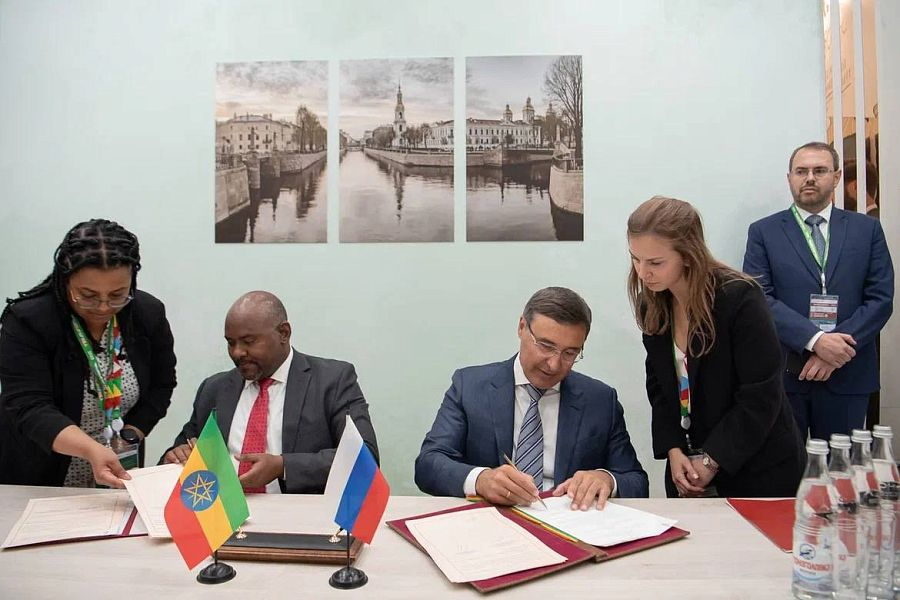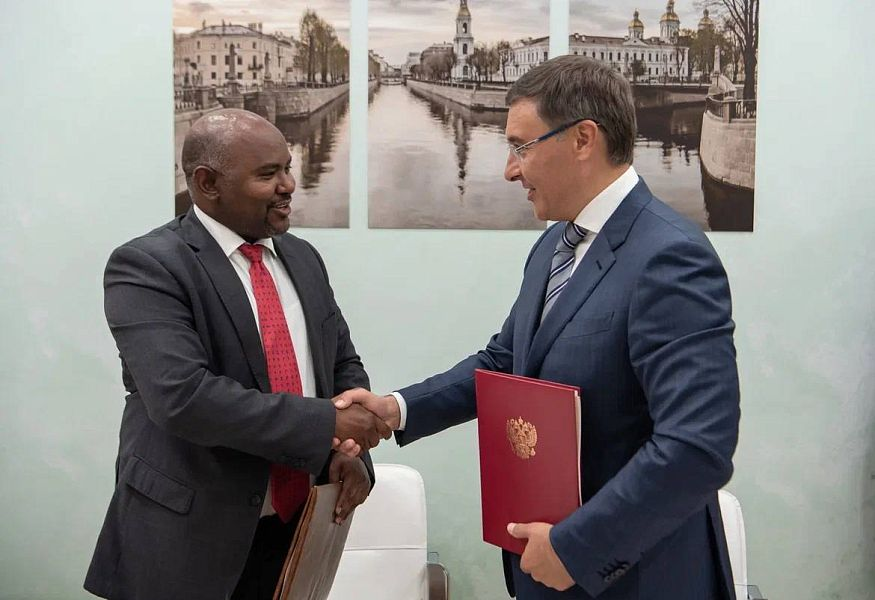
The Minister of Science and Higher Education of the Russian Federation Valery Falkov and the Minister of Innovation and Technology of the Federal Democratic Republic of Ethiopia Belete Molla signed an agreement on the creation of the Russian-Ethiopian Center for Biological Research.
The ministerial meeting took place within the second summit of the Russia-Africa Economic and Humanitarian Forum.
“It is with great pleasure that I welcome you to St. Petersburg, the cultural capital of Russia. I would like to remind you that the great Russian poet Alexander Pushkin, whose great-grandfather was from Ethiopia, dedicated many poems to this city. In February of this year, we celebrated 125 years since the establishment of official diplomatic relations, and today we will sign an intergovernmental agreement on the creation of a Russian-Ethiopian biological research center in your country,” noted Valery Falkov.
According to the head of the Russian Ministry of Education and Science, the creation of the Center is a long overdue decision.
“We have had a joint biological expedition with you since 1978, we have accumulated significant experience and it is high time to institutionalize it. Today we look forward to expanding the program and deepening our cooperation on a completely new level. We hope that the infrastructure proposed by our Ethiopian colleagues in the form of a building or a complex of facilities will meet the criteria necessary for the implementation of the project,” the Minister said.

It is planned that the creation of the Center will expand joint research and launch new areas of work in genomics, agrobiology and other areas. The research results will have fundamental and practical implications not only for Ethiopia but also for the world.
Valery Falkov also made a proposal to develop the Charter of the new Center in accordance with the concept prepared by the A.N. Severtsov Institute of Ecology and Evolution of the Russian Academy of Sciences.
Belete Molla, in turn, expressed gratitude to the Russian side for many years of fruitful scientific cooperation.
“Now is the time to begin a new chapter of our work together. We signed a document, the contents and main articles of which were worked out by us at the intergovernmental meeting in Addis Ababa. I am confident that within the framework of this agreement we will be able to achieve the desired result,” said the Minister of Innovation and Technology of the Federal Democratic Republic of Ethiopia.
It should be noted that the main objectives of the Russian-Ethiopian expedition are to study biodiversity, the evolution of living organisms, biological resources of Ethiopia, identify promising animal species for use in the national economy, develop environmental recommendations and provide assistance in training national scientific personnel through the joint participation of scientists from the two countries in research programs.
